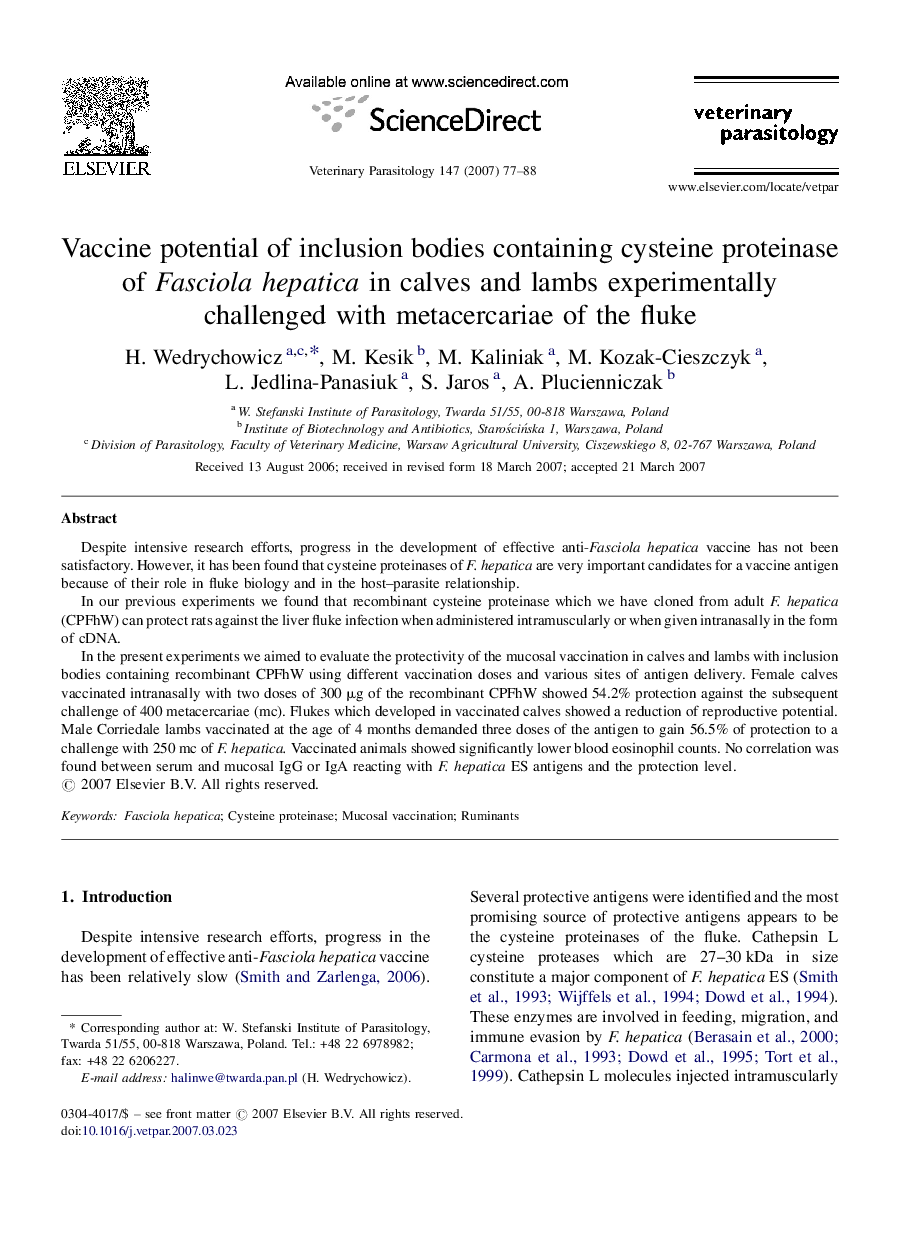| Article ID | Journal | Published Year | Pages | File Type |
|---|---|---|---|---|
| 2471927 | Veterinary Parasitology | 2007 | 12 Pages |
Despite intensive research efforts, progress in the development of effective anti-Fasciola hepatica vaccine has not been satisfactory. However, it has been found that cysteine proteinases of F. hepatica are very important candidates for a vaccine antigen because of their role in fluke biology and in the host–parasite relationship.In our previous experiments we found that recombinant cysteine proteinase which we have cloned from adult F. hepatica (CPFhW) can protect rats against the liver fluke infection when administered intramuscularly or when given intranasally in the form of cDNA.In the present experiments we aimed to evaluate the protectivity of the mucosal vaccination in calves and lambs with inclusion bodies containing recombinant CPFhW using different vaccination doses and various sites of antigen delivery. Female calves vaccinated intranasally with two doses of 300 μg of the recombinant CPFhW showed 54.2% protection against the subsequent challenge of 400 metacercariae (mc). Flukes which developed in vaccinated calves showed a reduction of reproductive potential. Male Corriedale lambs vaccinated at the age of 4 months demanded three doses of the antigen to gain 56.5% of protection to a challenge with 250 mc of F. hepatica. Vaccinated animals showed significantly lower blood eosinophil counts. No correlation was found between serum and mucosal IgG or IgA reacting with F. hepatica ES antigens and the protection level.
